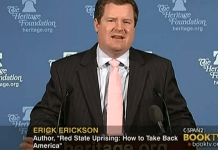France is gearing up for a pivotal two-round parliamentary election on June 30 and July 7, with political parties from both the far right and far left aiming to unseat President Emmanuel Macron’s centrist government. Their promises include cutting gasoline taxes, lowering retirement ages, and increasing wages, sparking concerns over fiscal recklessness and its potential impact on the country’s debt and international relations.
The election was triggered by Macron following a defeat in the EU parliamentary elections to Marine Le Pen’s National Rally party on June 9. This unexpected move was intended to thwart the rise of far-right influence in French politics, which has intensified amid widespread discontent over rising prices and economic stagnation. The political landscape has dramatically shifted, leaving the center ground vulnerable as Macron faces challenges from both the right and left extremes.
Economists warn of significant financial implications from the election promises. Estimates suggest that implementing these pledges could cost tens of billions of euros annually, straining France’s already stretched budget. Macron has criticized National Rally’s proposals as potentially costing 100 billion euros annually, with the left’s plans estimated to be even higher in financial impact.
Marine Le Pen, positioning herself for the role of prime minister, advocates slashing sales taxes on essentials like fuel and electricity, potentially costing between 9 billion to 16.8 billion euros annually in lost revenue. Meanwhile, the New Popular Front on the left promises to freeze prices on essentials and raise the minimum wage, measures that could collectively cost public finances billions more each year.
Central to these campaigns is the rollback of Macron’s pension reforms, which increased the retirement age to 64. Both the right and left wings pledge to reverse these reforms, a move that risks further straining France’s pension system amid an aging population.
France’s economic vulnerabilities are exacerbated by its high public debt, standing at around 112% of GDP, well above the EU average. The European Union has repeatedly urged France to reduce its deficit, which stood at 5.5% of GDP last year, breaching EU fiscal rules that mandate deficits below 3% of GDP.
The outcome of the election could lead to a period of “cohabitation,” where a president from one party governs alongside a prime minister from another, potentially complicating economic policy decisions. If a far-right or left-wing government prioritizes spending over fiscal discipline, it could trigger market volatility, similar to the turbulence seen in the United Kingdom under Prime Minister Liz Truss.
Financial markets are closely watching France’s political developments, wary of any signs that fiscal discipline may be compromised. The European Central Bank may intervene to stabilize French bond yields if market confidence falters, although it would require a credible plan from France to address its deficit and debt levels.
In conclusion, France stands at a crossroads as it heads into a decisive parliamentary election. The choices made by voters will not only shape the country’s economic future but also influence its standing within the European Union and global financial markets. The challenge for the incoming government will be balancing populist promises with the imperative of maintaining fiscal stability and economic growth.























